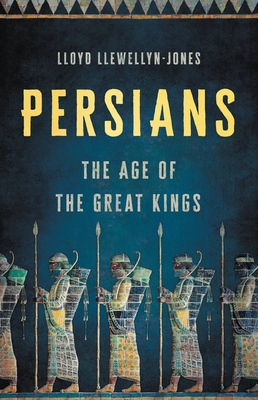
Roller-Coaster: Europe, 1950-2017
By: Ian Kershaw
Format: 666 pages, Hardcover
After the overwhelming horrors of the first half of the 20th century, described by Ian Kershaw in h…
Want to Read"A continuing thread of Europe’s transformation over the seven decades since 1950 has been the central importance of Germany. Change here, in the country that did more than any other to destroy the continent during the first half of the twentieth century, has been especially profound. Despite its destruction as a nation state at the end of the Second World War, Germany has remained at the heart of Europe’s development – central to post-war economic recovery, central to the Cold War, central to the ending of the Cold War, central to widening European integration, central to the creation of the Euro, central to the crisis of the Eurozone, central to the migration crisis, and central to the still-embryonic steps to reform the European Union after its recent serious travails. In the meantime Germany has become a vital pillar of stable liberal democracy, it presides over Europe’s strongest economy, has overcome forty years of division to attain national unity, and has reluctantly acquired the mantle of European leadership. Germany’s own transformation has played a key role in Europe’s post-war story – and is far from the least successful part."-Ian Kershaw, Roller-Coaster: Europe, 1950-2017
"A continuing thread of Europe’s transformation over the seven decades since 1950 has been the central importance of Germany. Change here, in the country that did more than any other to destroy the continent during the first half of the twentieth century, has been especially profound. Despite its destruction as a nation state at the end of the Second World War, Germany has remained at the heart of Europe’s development – central to post-war economic recovery, central to the Cold War, central to the ending of the Cold War, central to widening European integration, central to the creation of the Euro, central to the crisis of the Eurozone, central to the migration crisis, and central to the still-embryonic steps to reform the European Union after its recent serious travails. In the meantime Germany has become a vital pillar of stable liberal democracy, it presides over Europe’s strongest economy, has overcome forty years of division to attain national unity, and has reluctantly acquired the mantle of European leadership. Germany’s own transformation has played a key role in Europe’s post-war story – and is far from the least successful part."-Ian Kershaw, Roller-Coaster: Europe, 1950-2017
"Most people in Europe in 1950 held views that seventy years later would be regarded as anathema. The Universal Declaration of Human Rights (arising from their catastrophic breach during the Second World War) had been adopted by the United Nations as recently as December 1948, but there was little popular understanding of what it meant in practice. Racist views and blatant racial discrimination were widely accepted and scarcely seen as remarkable. Few people of skin colours other than white lived in European countries. Capital punishment was still in existence, and executions were routinely carried out for people found guilty of the worst crimes. Homosexuality remained a criminal offence. Abortion was illegal. The influence of the Christian churches was profound, and attendance at church services still relatively high. By the time post-war children approached old age, human rights were taken for granted (however imperfect the practice), holding racist views was among the worst of social stigmas (though less so in Eastern and Southern than in Western Europe), multicultural societies were the norm, capital punishment had disappeared from Europe, gay marriage and legal abortion were widely accepted, and the role of the Christian churches had diminished greatly (though the spread of mosques, a feature of modern European cities almost wholly unknown in 1950, testified to the importance of religion among Muslim minorities)."-Ian Kershaw, Roller-Coaster: Europe, 1950-2017
"Most people in Europe in 1950 held views that seventy years later would be regarded as anathema. The Universal Declaration of Human Rights (arising from their catastrophic breach during the Second World War) had been adopted by the United Nations as recently as December 1948, but there was little popular understanding of what it meant in practice. Racist views and blatant racial discrimination were widely accepted and scarcely seen as remarkable. Few people of skin colours other than white lived in European countries. Capital punishment was still in existence, and executions were routinely carried out for people found guilty of the worst crimes. Homosexuality remained a criminal offence. Abortion was illegal. The influence of the Christian churches was profound, and attendance at church services still relatively high. By the time post-war children approached old age, human rights were taken for granted (however imperfect the practice), holding racist views was among the worst of social stigmas (though less so in Eastern and Southern than in Western Europe), multicultural societies were the norm, capital punishment had disappeared from Europe, gay marriage and legal abortion were widely accepted, and the role of the Christian churches had diminished greatly (though the spread of mosques, a feature of modern European cities almost wholly unknown in 1950, testified to the importance of religion among Muslim minorities)."-Ian Kershaw, Roller-Coaster: Europe, 1950-2017
If you liked the history plot in Roller-Coaster: Europe, 1950-2017 by Ian Kershaw , here is a list of 17 books like this:
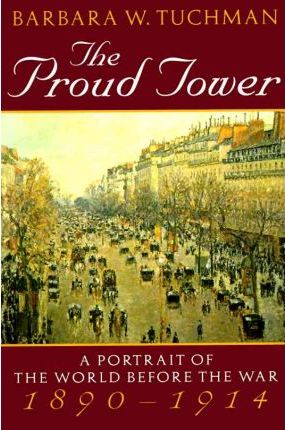
1. The Proud Tower: A Portrait of the World Before the War, 1890-1914
By: Barbara W. Tuchman
Format: 588 pages, Paperback
During the fateful quarter century leading up to World War I, the climax of a century of rapid, unp… read more
Want to Read $ 9.99Similar categories in Barbara W. Tuchman's The Proud Tower: A Portrait of the World Before the War, 1890-1914 book and Ian Kershaw's Roller-Coaster: Europe, 1950-2017
- history
- world history
- historical
- politics
- nonfiction
- european history
"Even his own speeches bored him."-Barbara W. Tuchman, The Proud Tower: A Portrait of the World Before the War, 1890-1914
"Duty was not untinged by ambition."-Barbara W. Tuchman, The Proud Tower: A Portrait of the World Before the War, 1890-1914
"Society's revenge matched its fright."-Barbara W. Tuchman, The Proud Tower: A Portrait of the World Before the War, 1890-1914
"I command, or I keep quiet." Napoleon"-Barbara W. Tuchman, The Proud Tower: A Portrait of the World Before the War, 1890-1914

2. The Age of Revolution: 1789-1848
By: Eric J. Hobsbawm
Format: 67 pages, Paperback
This magisterial volume follows the death of ancient traditions, the triumph of new classes, and th… read more
Want to ReadSimilar categories in Eric J. Hobsbawm's The Age of Revolution: 1789-1848 book and Ian Kershaw's Roller-Coaster: Europe, 1950-2017
- history
- world history
- politics
- nonfiction
- european history

3. Postwar: A History of Europe Since 1945
By: Tony Judt
Format: 933 pages, Paperback
Almost a decade in the making, this much-anticipated grand history of postwar Europe from one of th… read more
Want to Read $ 9.99Similar categories in Tony Judt's Postwar: A History of Europe Since 1945 book and Ian Kershaw's Roller-Coaster: Europe, 1950-2017
- history
- world history
- historical
- politics
- nonfiction
- european history
- 20th century
- audiobook
"Broken eggs make good omelettes. But you cannot build a better society on broken men."-Tony Judt, Postwar: A History of Europe Since 1945
"Far from addressing the Soviet nationalities question, the Afghan adventure had, as was by now all too clear, exacerbated it. If the USSR faced an intractable set of national minorities, this was in …"-Tony Judt, Postwar: A History of Europe Since 1945
"The imposition of a Russian rather than a German solution cut Europe’s vulnerable eastern half away from the body of the continent. At the time this was not a matter of great concern to western Europ…"-Tony Judt, Postwar: A History of Europe Since 1945
"Maastricht had three significant side-effects. One of them was the unforeseen boost it gave to NATO. Under the restrictive terms of the Treaty it was clear (as the French at least had intended) that …"-Tony Judt, Postwar: A History of Europe Since 1945

4. The Panama Papers
By: Bastian Obermayer , Frederik Obermaier
Format: 205 pages, Paperback
Late one evening, investigative journalist Bastian Obermayer receives an anonymous message offering… read more
Want to ReadSimilar categories in Bastian Obermayer's The Panama Papers book and Ian Kershaw's Roller-Coaster: Europe, 1950-2017
- politics
- history
- nonfiction
5. The Gates of Europe: A History of Ukraine
By: Serhii Plokhy
Format: 268 pages, Hardcover
Ukraine is currently embroiled in a tense battle with Russia to preserve its economic and political… read more
Want to ReadSimilar categories in Serhii Plokhy's The Gates of Europe: A History of Ukraine book and Ian Kershaw's Roller-Coaster: Europe, 1950-2017
6. The Future of War: A History
By: Lawrence Freedman
Format: None pages, Hardcover
In 1912, Sir Arthur Conan Doyle, creator of Sherlock Holmes, wrote a short story about a war fought… read more
Want to ReadSimilar categories in Lawrence Freedman's The Future of War: A History book and Ian Kershaw's Roller-Coaster: Europe, 1950-2017
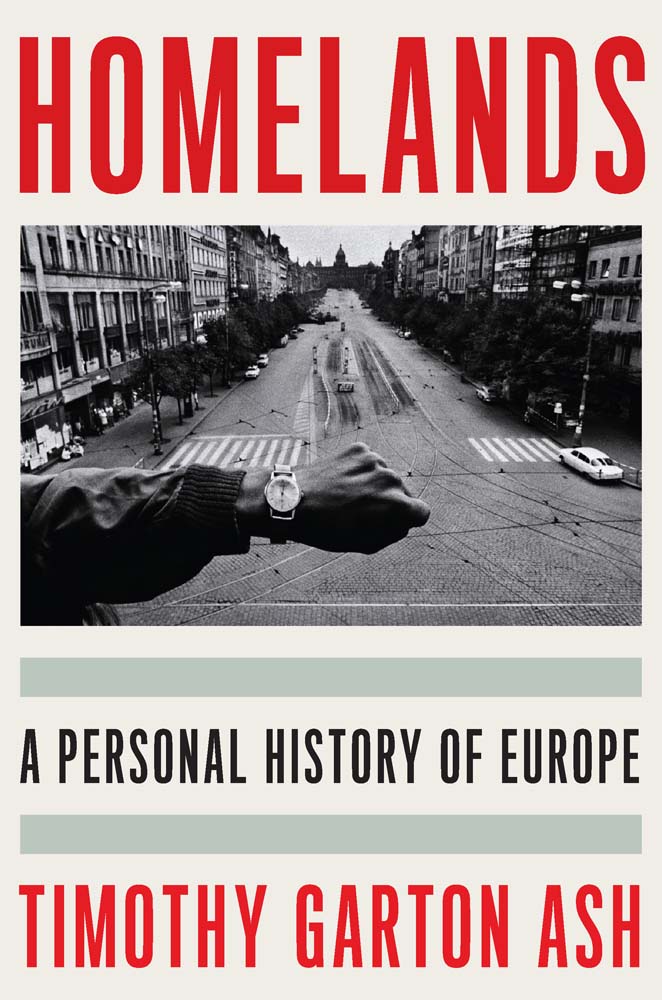
7. Homelands: A Personal History of Europe
By: Timothy Garton Ash
Format: 384 pages, Hardcover
Drawing on half a century of firsthand experience and exemplary scholarship, Timothy Garton Ash tel… read more
Want to Read $ 9.99Similar categories in Timothy Garton Ash's Homelands: A Personal History of Europe book and Ian Kershaw's Roller-Coaster: Europe, 1950-2017
- history
- politics
- nonfiction
- european history
- audiobook

8. Pax: War and Peace in Rome's Golden Age
By: Tom Holland
Format: 400 pages, Hardcover
Pax is the third in a trilogy of books narrating the history of the Roman Empire. The series that b… read more
Want to Read $ 19.99Similar categories in Tom Holland's Pax: War and Peace in Rome's Golden Age book and Ian Kershaw's Roller-Coaster: Europe, 1950-2017
- history
- politics
- nonfiction
- european history
- audiobook

9. Blood and Iron: The Rise and Fall of the German Empire 1871–1918
By: Katja Hoyer
Format: 256 pages, Hardcover
Before 1871, Germany was not a nation but an idea. Its founder, Otto von Bismarck, had a formidable… read more
Want to Read $ 11.99Similar categories in Katja Hoyer's Blood and Iron: The Rise and Fall of the German Empire 1871–1918 book and Ian Kershaw's Roller-Coaster: Europe, 1950-2017
- history
- politics
- nonfiction
- european history
- audiobook

10. Russia: Revolution and Civil War 1917-1921
By: Antony Beevor
Format: 608 pages, Hardcover
An epic new account of the conflict that reshaped Eastern Europe and set the stage for the rest of … read more
Want to Read $ 4.99Similar categories in Antony Beevor's Russia: Revolution and Civil War 1917-1921 book and Ian Kershaw's Roller-Coaster: Europe, 1950-2017
- european history
- politics
- history
- nonfiction

11. Roller-Coaster: Europe, 1950-2017
By: Ian Kershaw
Format: 666 pages, Hardcover
After the overwhelming horrors of the first half of the 20th century, described by Ian Kershaw in h… read more
Want to ReadSimilar categories in Ian Kershaw's Roller-Coaster: Europe, 1950-2017 book and Ian Kershaw's Roller-Coaster: Europe, 1950-2017
- history
- world history
- historical
- politics
- nonfiction
- european history
- 20th century
- 21st century
- political science
- audiobook
"A continuing thread of Europe’s transformation over the seven decades since 1950 has been the central importance of Germany. Change here, in the country that did more than any other to destroy the co…"-Ian Kershaw, Roller-Coaster: Europe, 1950-2017
"Most people in Europe in 1950 held views that seventy years later would be regarded as anathema. The Universal Declaration of Human Rights (arising from their catastrophic breach during the Second Wo…"-Ian Kershaw, Roller-Coaster: Europe, 1950-2017

12. The Abyss: Nuclear Crisis Cuba 1962
By: Max Hastings
Format: 538 pages, Hardcover
Bestselling author Max Hastings offers a welcome re-evaluation of one of the most gripping and tens… read more
Want to Read $ 17.99Similar categories in Max Hastings's The Abyss: Nuclear Crisis Cuba 1962 book and Ian Kershaw's Roller-Coaster: Europe, 1950-2017
- history
- world history
- politics
- nonfiction
- audiobook

13. The Habsburgs: To Rule the World
By: Martyn Rady
Format: 416 pages, Hardcover
The definitive history of the dynasty that dominated Europe for centuries In The Habsburgs, Mart… read more
Want to Read $ 14.99Similar categories in Martyn Rady's The Habsburgs: To Rule the World book and Ian Kershaw's Roller-Coaster: Europe, 1950-2017
- history
- world history
- historical
- politics
- nonfiction
- european history
- audiobook
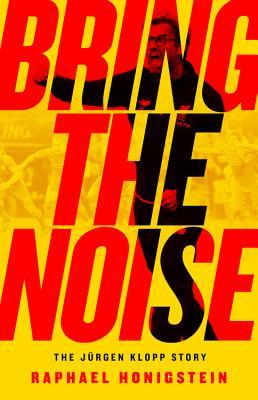
14. Bring the Noise: The Jürgen Klopp Story
By: Raphael Honigstein
Format: 352 pages, Paperback
JüKlopp's coaching career began in the German second tier at the unfashionable club of FSV Mainz 0… read more
Want to Read $ 11.99Similar categories in Raphael Honigstein's Bring the Noise: The Jürgen Klopp Story book and Ian Kershaw's Roller-Coaster: Europe, 1950-2017
- nonfiction
- audiobook

15. Aftermath: Life in the Fallout of the Third Reich, 1945–1955
By: Harald Jähner
Format: 400 pages, Hardcover
Germany, 1945: a country in ruins. Cities have been reduced to rubble and more than half of the pop… read more
Want to Read $ 14.99Similar categories in Harald Jähner's Aftermath: Life in the Fallout of the Third Reich, 1945–1955 book and Ian Kershaw's Roller-Coaster: Europe, 1950-2017
- history
- historical
- politics
- nonfiction
- european history
- audiobook

16. Barbarossa: How Hitler Lost the War
By: Jonathan Dimbleby
Format: 597 pages, Kindle Edition
Operation Barbarossa, Hitler's invasion of Russia in June 1941, aimed at nothing less than a war of… read more
Want to Read $ 14.57Similar categories in Jonathan Dimbleby's Barbarossa: How Hitler Lost the War book and Ian Kershaw's Roller-Coaster: Europe, 1950-2017
- nonfiction
- history
- audiobook
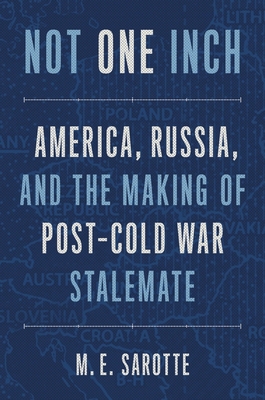
17. Not One Inch: America, Russia, and the Making of Post-Cold War Stalemate
By: Mary Elise Sarotte
Format: 568 pages, Hardcover
A leading expert on Cold War foreign policy reveals how tensions between America, NATO, and Russia … read more
Want to Read $ 16.99Similar categories in Mary Elise Sarotte's Not One Inch: America, Russia, and the Making of Post-Cold War Stalemate book and Ian Kershaw's Roller-Coaster: Europe, 1950-2017
- history
- politics
- nonfiction
- european history
- audiobook

18. Everyone Who Is Gone Is Here: The United States, Central America, and the Making of a Crisis
By: Jonathan Blitzer
Format: 544 pages, Hardcover
An epic, heartbreaking, and deeply reported history of the disastrous humanitarian crisis at the so… read more
Want to Read $ 13.99Similar categories in Jonathan Blitzer's Everyone Who Is Gone Is Here: The United States, Central America, and the Making of a Crisis book and Ian Kershaw's Roller-Coaster: Europe, 1950-2017
- politics
- history
- nonfiction
- audiobook

19. Children of the Night: The Strange and Epic Story of Modern Romania
By: Paul Kenyon
Format: 496 pages, Hardcover
The only country in Eastern Europe to speak a Latin language, Romania has always felt itself differ… read more
Want to Read $ 9.99Similar categories in Paul Kenyon's Children of the Night: The Strange and Epic Story of Modern Romania book and Ian Kershaw's Roller-Coaster: Europe, 1950-2017
- history
- historical
- politics
- nonfiction
- european history
- 20th century
- audiobook
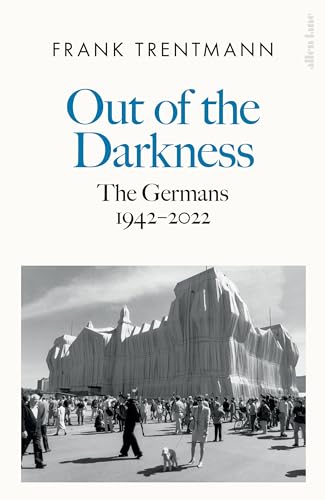
20. Out of the Darkness: The Germans, 1942-2022
By: Frank Trentmann
Format: 856 pages, Kindle Edition
A groundbreaking new history of the people at the centre of Europe, from the Second World War to to… read more
Want to Read $ 14.99Similar categories in Frank Trentmann's Out of the Darkness: The Germans, 1942-2022 book and Ian Kershaw's Roller-Coaster: Europe, 1950-2017
- history
- world history
- politics
- nonfiction
- european history
